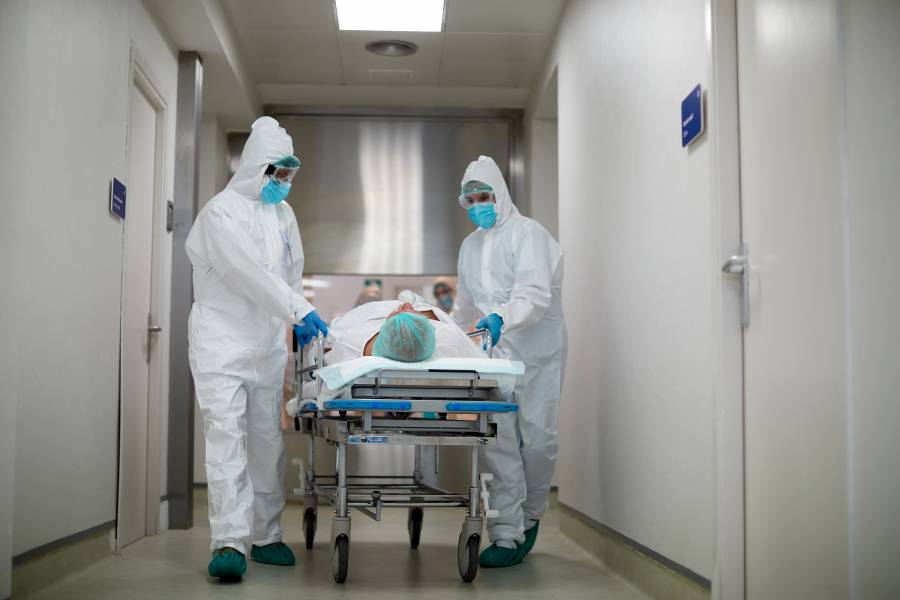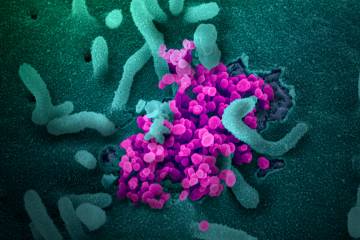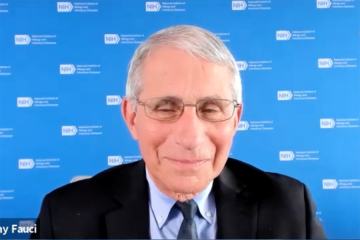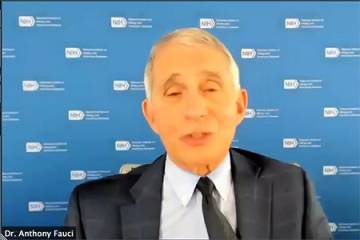When asked on Wednesday to describe the state of public health in America today, a group of leading U.S. policymakers and experts chimed in with some encapsulating words: "Crisis." "Fragmented." "Inequitable." "Precarious."
As philanthropist Michael R. Bloomberg said during the virtual 2020 Bloomberg American Health Summit, the present is a moment of truth for the field of public health. "No crisis has exposed the fault lines of American health like COVID-19," said Bloomberg, former New York City mayor and founder of Bloomberg Philanthropies.
The summit, which gathered an online crowd of more than 1,100, featured health agency directors, mayors, and prominent U.S. public health figures including former CDC director Tom Frieden, and David Kessler, co-chair of President-elect Biden's COVID-19 task force. The Bloomberg American Health Initiative, part of the Johns Hopkins Bloomberg School of Public Health, hosted the event.
Anthony Fauci, director of the National Institute of Allergy and Infectious Diseases, addressed the political polarization exacerbating COVID-19 in the U.S. The pandemic evolved "at a time when there was just an extraordinary amount of divisiveness in our country, totally unrelated to COVID-19," he said. "So I think you combine inherent divisiveness with the stress and strain of an election year—it was the worst possible combination you could have for a public health crisis, because … what you need is everybody pulling together in the same direction."
Bloomberg underscored the current severity of the pandemic, with the U.S. eclipsing 15 million cases of coronavirus this week. "In just the minute I'm talking to you now, at least one American will die from the virus, and every minute all day long today, somebody's spouse or grandparent or lifelong friend will also die a preventable death," he said. "So we can't sit back and wait for a vaccine. This morning, we'll have to recommit to fighting all the misinformation and keep doing everything we can to save lives right now."
The summit examined ways the COVID-19 crisis has compounded existing health challenges in the U.S., including violence, the opioid epidemic, and deep-seated racial inequities.
"It's so hard to focus just on pandemic recovery when COVID is like the predator in the ocean, but you have already drowned. Poor communities of color were already trying to survive when COVID hit," said Joni Holifield, founder of HeartSmiles, a youth-focused Baltimore nonprofit.
Lisa Cooper, director of the Johns Hopkins Center for Health Equity, discussed the role public health leaders can play in easing distrust around COVID-19 vaccines. "Don't overpromise, don't act like we know everything. Tell them really truthfully what we know about the process of vaccines … and whether or not we would recommend the vaccine to our family members or friends, or whether we ourselves would be willing to stand up and say, 'I would take the vaccine,'" she said.
Wednesday's event also announced a new partnership between Bloomberg Philanthropies and the U.S. Conference of Mayors to help city leaders prepare for local distributions of the coronavirus vaccine as it rolls out. Experts at the Bloomberg School of Public Health will support the effort, providing the latest information about the virus and vaccines.
The new effort, like the Bloomberg American Health Initiative itself, is part of the school's long legacy of supporting global public health. During his remarks, JHU President Ronald J. Daniels recalled the school's origins in 1918, as the Spanish flu ripped across the world. "In the decades since, the school has courageously confronted virtually every subsequent public health crisis, including most recently the COVID-19 pandemic," he said.
Posted in Health, Science+Technology, Politics+Society
Tagged bloomberg american health initiative, coronavirus, covid-19, anthony fauci











